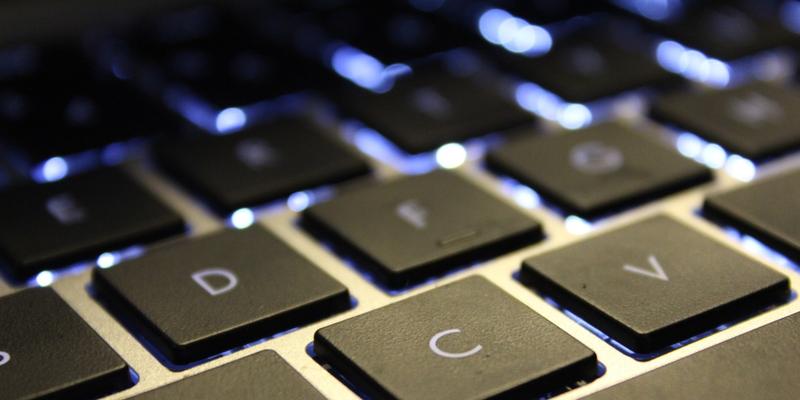Atlanta Schools Crack Down On Cyberbullying, Harassment

Dboybaker / www.flickr.com/demietrich
Feeling safe in school may seem like a basic civil right. But plenty of students ─ especially those of certain faiths and cultures ─ are often harassed and bullied in American schools. There are no federal laws to protect them, and state laws vary.
Often, the attacks don’t stop at the end of the school day.
The Internet has made it easier for so-called “cyberbullies” to work around the clock. Cyberbullying is defined as using electronic communication to bully someone, often by sending intimidating or threatening messages.
It can be a challenging issue to tackle because online communication often happens off-campus, where schools don’t have jurisdiction. But some lawmakers, school districts and activists are trying to get a handle on it.
A ‘Civil Rights Crisis’
The advocacy group Asian Americans Advancing Justice-Atlanta holds a lobbying event near the Georgia Capitol each year. The organization successfully pushed for a bill cracking down on cyberbullying last year because Asian-American students are most often the targets of both bullying and cyberbullying, according to a report by the White House.
Within that community, students of the Sikh faith are bullied most frequently, a study by the Sikh Coalition reports.
Sikhism originated in northern India. As part of their faith, boys wear turbans and keep their hair long. Those physical differences can lead to relentless teasing and bullying.
A Sikh student in Gwinnett County filmed kids harassing him on a school bus last year. The school district took action after the video went viral.
Of course, officials can’t always monitor what kids do outside of school. But Arjun Singh Sethi, director of law and policy with the national Sikh Coalition, said districts need to work harder on the front end.
“Part of it is incorporating awareness about different ethnic and faith traditions into school curricula,” Sethi said. “But also, getting educators, superintendents, teachers, to really recognize that bullying is a civil rights crisis.”
The ‘Larger Social Order’
The DeKalb school system said its doing that. The district has long-had anti-bullying policies, but it’s now required to provide training on “religious and national origin” harassment through an agreement it reached with the U.S. Department of Justice.
Quentin Fretwell, DeKalb’s safe schools coordinator, describes the resolution as a partnership.
“What we’re basically doing is sharing information, collaborating together, and ‘Take a look at this; what do you think about this?’ So on and so forth,” he said. “There is some reporting that we do.”
The resolution came about after a Sikh student, Japgee Singh, was viciously attacked in school. His sister, Asees Kaur, said he was always picked on. (We spoke with Kaur because Japgee is still a student.)
“Sixth grade, seventh grade, it was mostly verbal, but the things kids were saying were a lot meaner,” Kaur said. “They were all along the lines of, ‘You’re a terrorist. Go back to your country. What do you have in your turban? Is it a bomb? You look like Aladdin.’”
Then, after lunch one day in eighth grade, another student slapped him and wouldn’t relent.
“After he slapped him, he threw him down, pinned him to the ground and threw about eight punches — on his chest, on his face, he broke his nose, fractured his cheekbones, dislocated his jaw,” Kaur said. “He needed two surgeries to recover from the physical trauma.”
All DeKalb students and staff now go through anti-bullying training. But Fretwell said the problem extends well beyond the school yard.
“It’s the larger social order because if you watch, you can see bullying, harassment happens everywhere,” he said. “So one thing we do in our training is we try to talk to the adults to say, ‘You need to be more aware of what you communicate.’”
Anti-bullying Laws
Georgia has had an anti-bullying law since 1999. But the Georgia Legislature only approved a cyberbullying bill last year when Asian Americans Advancing Justice-Atlanta teamed up with state Rep. Pam Dickerson, D-Conyers. A 16-year-old girl in her district was victimized.
“Her picture was taken and she was put on a pornographic site — with all of her information: name, address, email, everything that you could possibly think of that was personal was put on this website,” Dickerson said.
Dickerson’s bill made cyberbullying a misdemeanor in Georgia. It’s punishable by a fine or jail time.
But Fretwell, of the DeKalb Schools, said punishing cyberbullies in school can be tricky because of the First Amendment, which guarantees free speech.
“You can always address anything, but can you discipline for it? That’s what’s tough for schools because it’s never really been completely settled,” he said.
Some Atlanta-area school districts, such as DeKalb and Cobb, monitor online communications in schools so officials can step in if necessary.
Sethi, with the Sikh Coalition, said districts need to be especially vigilant in today’s climate.
“In the aftermath of San Bernardino, we have seen an escalation in bullying against Sikh-American students, against Muslim-American students, and Arab-American and South Asian students as well,” he said.
Due to Rep. Dickerson’s bill, every Georgia school system is required to have policies that address both bullying and cyberbullying.
But according to national government data, many states and school districts are still learning how to effectively prevent and respond to cyberbullying.
9(MDAxODM0MDY4MDEyMTY4NDA3MzI3YjkzMw004))








